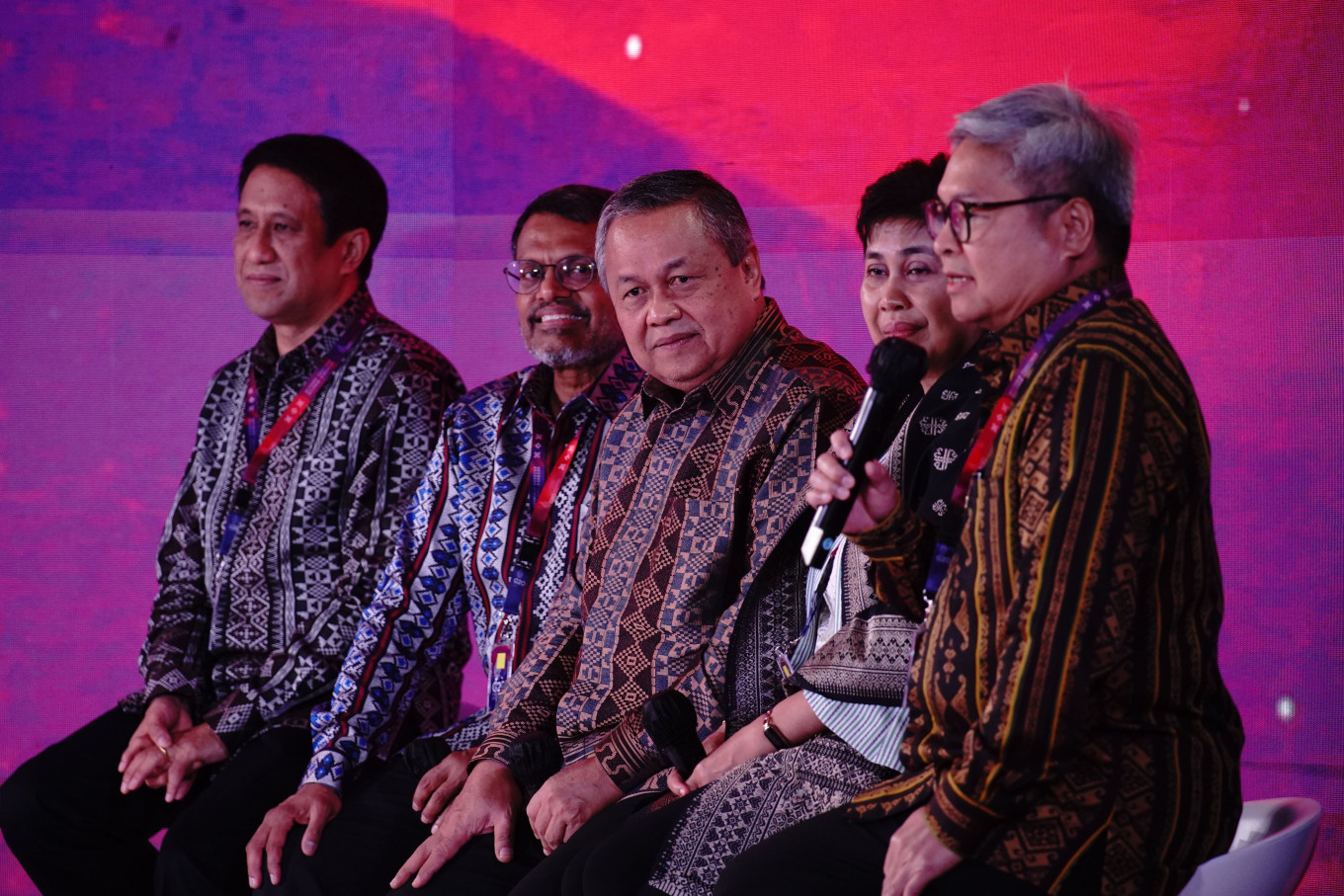Why expanding ASEAN payment connectivity matters
Increasing regional payment connectivity of participants can facilitate trade, investment, financial market deepening, remittances, tourism and other cross-border economic activities.
Change text size
Gift Premium Articles
to Anyone


During the 42nd ASEAN Summit in Labuan Bajo last May, ASEAN leaders said they looked forward to the expansion of the memorandum of understanding (MoU) on Cooperation in Regional Payment Connectivity (RPC) with other ASEAN countries, believing that the RPC 's inclusiveness is critical in promoting the region’s recovery.
The MoU on Cooperation in RPC was signed by five central banks of the ASEAN-5 countries, namely Indonesia, Malaysia, Singapore, Thailand and the Philippines, on the sidelines of Group of 20 summit in Bali in November 2022. The agreement seeks to strengthen and enhance cooperation on payment connectivity to support faster, cheaper, more transparent and more inclusive cross-border payments.
The expansion of the Memorandum of Understanding (MoU) on Cooperation in Regional Payment Connectivity (RPC) is essential, not only for the ASEAN region but also for Indonesia. RPC's inclusiveness to reach all ASEAN member countries can open opportunities for the region to strengthen its economy. In addition, Indonesia, as the initiator of the RPC, will potentially take advantage of the initiative's expansion.
Why is the opportunity to expand RPC MoU participation important for ASEAN? Expanding the MoU on RPC participants can open opportunities for all member states to acquire at least three mutual benefits from fast, seamless and more affordable cross-border payments in the region.
First, the expansion of the MoU will potentially accelerate economic recovery and support more inclusive economic growth in Southeast Asia.
Second, increasing RPC participants can facilitate trade, investment, financial market deepening, remittances, tourism, and other cross-border economic activities and encourage a more inclusive regional economic and financial ecosystem.
Third, the more member countries join RPC, the more penetration and exposure opportunities for micro, small, and medium enterprises (MSMEs) in the Southeast Asian market.
Those three potential benefits are based on one of the critical elements of RPC: the use of local currency in transactions. This mechanism aims to reduce the dependency on hard currencies. Thus, each ASEAN member state can maintain the volatility of their local currencies against major currencies and improve financial resilience in the region.
In addition, expanding the MoU on RPC, which leads to interoperability of payment connectivity across Southeast Asia, will bring significant benefits for Indonesia's domestic market in at least three areas.
The first area is trade. According to data from Statistics Indonesia (BPS), Indonesia recorded a surplus (net export) of approximately US$4.1 billion in ASEAN countries beyond the ASEAN-5 in 2021. Indonesia's gross export to this group of countries was 18.16 percent of its total exports in the region in 2021. This figure is higher than the country's exports to the Philippines (17.92 percent) and Thailand (14.76 percent) individually.
Meanwhile, Indonesia's imports from ASEAN countries outside ASEAN-5 were only 11.59 percent of total imports in 2021. Thus, the expansion of the MoU on RPC can help Indonesia grab broader potential trade markets in Southeast Asia and increase the significance of Indonesia's trade in ASEAN.
The second area is MSMEs. According to data from the Coordinating Economic Ministry, the contribution of MSMEs to GDP and the total national labor absorption were 60.5 percent and 96.9 percent, respectively. Since the RPC expansion can help MSMEs have a broader range of exports, the MSMEs will have greater opportunity to encourage economic growth and reduce the risk of increasing unemployment.
The third area is tourism. From 2010 to 2019 (the pre-pandemic period), BPS noted that tourists visiting Indonesia from ASEAN countries besides ASEAN-5 increased more than three times. On the other hand, the increase in total tourists from all ASEAN states only doubled.
In addition, in 2019, the growth of tourists from ASEAN countries other than ASEAN-5 was 17.5 percent, much faster than the growth of tourists from all Southeast Asian countries (5.46 percent). This figure shows the potential for an increase in Indonesia's tourism sector if the participants of the MoU on RPC are expanded.
To achieve those promising advantages, the spirit of multilateralism of the member states and the leadership of Indonesia's chairmanship in ASEAN are key. Fortunately, during the 9th ASEAN Finance Ministers and Central Bank Governors Meetings (AFMGM) in March 2023, some ASEAN member countries showed interest in joining the expansion. In August of this year, the finance ministers and central bank governors will receive information on the progress of the expansion of the MoU on RPC at the 10th AFMGM.
In the Finance Integration track in ASEAN, Bank Indonesia (BI), as the lead on the RPC agenda, and the Indonesian Finance Ministry must take advantage of this momentum by never putting this attempt on ice. Progress should be made and diplomacy should be effective.
The diplomatic communications should assert that expanding RPC MoU participants can promote payment connectivity to reach across all borders in Southeast Asia for the benefit of all member countries. Thus, the successful expansion of the MoU on RPC can eventually facilitate economic recovery in the region and further strengthen ASEAN's position as the epicentrum of global economic growth.
***
The writer is an economist in the international department of Bank Indonesia. The views expressed are his own.









